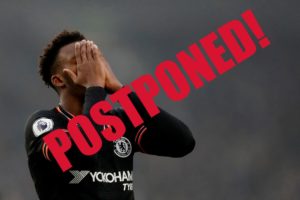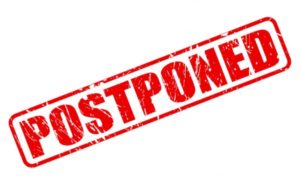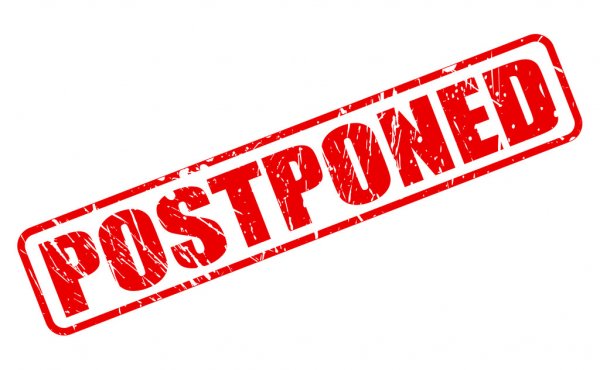
The coronavirus is impacting the sports world in different ways. Here a few tips and tricks from a sport psychology perspective on how athletes can cope with the current situation.
For some athletes, they can continue to play but in stadiums with no crowds. Other athletes are told training and games are suspended until further notice; some leagues have even decided to end the season early to slow down the spread of the coronavirus. All these scenarios impact an athlete and a coach. Athletes who are told they can no longer compete may feel a sense of loss. They may fall into a mild depression. They may struggle with their identity as they don’t know what to do with themselves, now that training and competition have been put on hold. With the Olympics around the corner, athletes might feel a bit panicked that they don’t have enough time to prepare depending on how long it takes until everything is back to normal.
Let’s tackle each of these scenarios individually.
Playing in empty stadiums (Geisterspiele).

There are things players, coaches and, managers can do to prepare for the current coronavirus situation.
Firstly, as most professional players are able or should be able to block out distractions and their surroundings. Therefore, in theory, it shouldn’t have such a big impact on whether the stadium has people or is empty. It may help to reach out to athletes that are used to playing or performing their sport with small crowds. To exchange ideas and learn how those athletes manage to perform.
It is important to remember why you are here, why the game is important, and focus on the process. Also, remember the reason for the empty stadiums is to slow the spread of the coronavirus. Try and remember the bigger picture. You may not be at risk but your loved ones could be.
The belief that the crowd is there to impact/influence the emotions and mood of the player.
Not playing in front of a crowd can benefit some players as it takes away that pressure. Especially athletes who have been struggling and recently not performing well. Whereas, other athletes who strive from the passion and support from their fans may struggle as they get the “fire” from the crowd. However, if you think rationally about it your fans can’t directly impact the game. This is more of an indication that athletes might need help with activation and arousal strategies. Each athlete has a different optimal zone of performance. Therefore, it is important for each to know what their level is.
This is where a sport psychologist/mental skills coach can help you by teaching you different techniques. Reconnect with the intrinsic motivation and the internal drive of why you are playing the sport. Performing in front of a crowd is not why you started with the sport or why you fell in love with the sport.
How can coaches help
Communication between the athletes and coaches is key during this time. Having open and honest discussions about your thoughts, worries, and fears on the coronavirus situation is important. Together you can then find solutions. Discuss how other players tackle it. This might help those who are struggling to get an idea of how to cope with the new situation. Coaches should also seek out one to one conversation with their athletes. Especially if they see that some are struggling more then others. Find out how you as a coach can support them. However, ideally again it would be great to get a sport psychologist/mental skills coach involved as the coach might be struggling as well.
It will help to simulate the game situation. Train in the stadium without a crowd, getting them to focus on the process and not on the crowds. Using noise-canceling headphones so they get the feel of the empty stadium, could help. It is important for the coach to find a way to motivate and stimulate the players just before the start of the game. This energy they get just before “kick-off” and having specific tasks (processes) that they can focus on during the game will help.
During game communication
As coaches remember that as there are no fans, players can hear everything you say. Make sure your comments and feedback are constructive and positive. You can see the positive side of this as you can address things without all the adrenaline and emotions that a “normal” game would have with the crowds going wild. But be aware of not disrupting the flow of the game too much.
No games until further notice

This means that there is a chance the season will continue once the spread of the coronavirus as slowed down. Therefore, not doing anything in the athlete’s opinion won’t work. Discuss with coaches, sport science staff what each can do at home to continue preparing for when the season continues. This is a great time to also work on mental preparation. You can use this time to improve your mental game. Find ways to keep training the brain. Working on other aspects that will keep you motivated while training at home. Stay positive during the current situation and avoid falling into a hole.
Communication
Communication between athletes, coaches, and support staff is key during this time. Reassuring the athletes, letting them know about updates but also reducing panic and anxiety. Give them tasks to do at home. Certain strength training they can do, video analysis. Be creative!
Emotions
Acknowledge the emotions that come with it. It is absolutely okay to feel frustrated, angry but come up with a plan to tackle these emotions and thoughts. However, don’t blame your clubs, associations, government, they are only trying to protect you. Remember as an athlete the coronavirus won’t be such a big risk for you BUT think about your loved ones, parents, grandparents they are more at risk and so by trying to reduce the spread of the virus you are keeping them safe.
Your sport will still be there afterwards, you are strong and still going strong. Nothing can stop you, use this experience to your advantage! Sports has taught you about resilience, about adversity use all the lessons you have learned from all sessions to get through this time. Remember it isn’t about the outcome it is about the journey the process, and focus on who you have become. This is a time where you can work on the characteristics that you feel are important to help you be the best person/athlete you can be. How can you keep working on those characteristics while not being able to participate in your sport?
Have you had a long-term injury in the past? How did you cope with that when you weren’t able to compete? Use the coping skills you developed there to help you get through this time. Talk to your teammates, see what they are doing, how they are holding up. You can support each other and learn from each other. Though remember what works for one may not work for all.
Early end of the season due to the Coronavirus

Same as the above this is your time to work on your mental skills, your mental game, working on the characteristics that you need to be the best that you can be. Draw from your sporting experience to get through this.
Take the time to recover from any niggles that you may have been experiencing during the season. Start preparing for the next season.
Again, acknowledge the emotions that are going to be part of this, the anger, the frustration the sadness. It is absolutely okay and normal to be feeling that. Accepting and then let it go and focus on the process, on the next step. What can do you now to help you prepare for the next season? Speak with your coaches and sport science staff such as physios and strength and conditioning coaches on what you can be working on. Coming up with creative ways to keep training. Keep learning and developing the physical, tactical and mental skills that can help you.
Remember that most countries have put a stop to training and competition, so you aren’t falling behind. This is important to remember especially for those athletes preparing for Olympic games.
There is no need to panic this is just a precaution and a way to slow the spread of the coronavirus.
If you want more information or ideas on how to cope and deal with this time get in touch or book a call.
